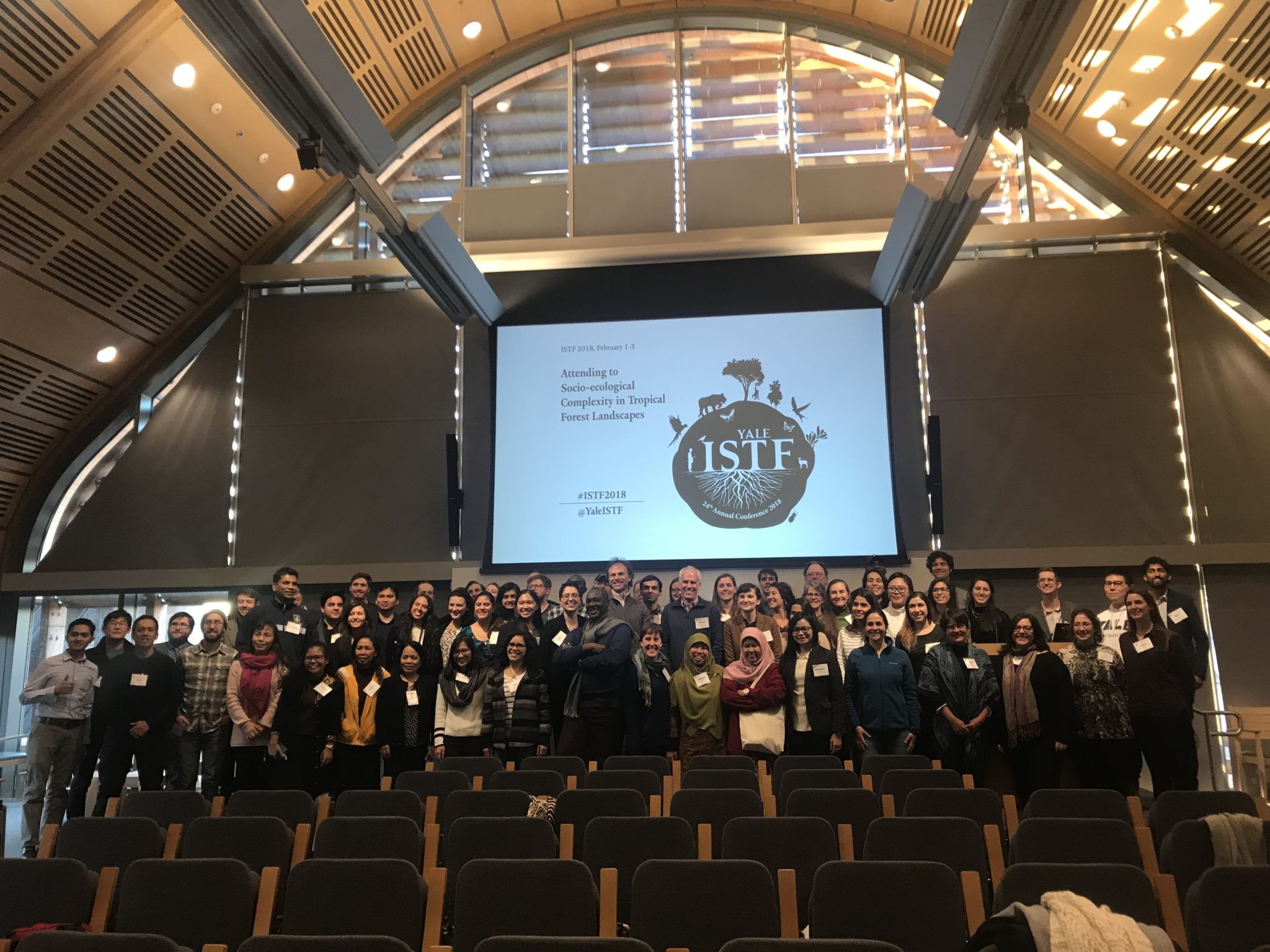
About 150 researchers, students and practitioners from around the world came together over the weekend to share their work on tropical forests.
Organized by about 20 students in the Yale chapter of the International Society of Tropical Foresters, this year’s event was the 24th annual ISTF conference. The forum — centered this year on the theme “Attending to Socio-ecological Complexity in Tropical Forest Landscapes” — fostered discussions about the different ecosystems, sociopolitical regimes and stakeholder perspectives within each tropical forest region.
“Maintaining the complexity of human-modified tropical landscapes is needed to preserve biodiversity and ecological services,” said Victor Arroyo-Rodriguez, a landscape ecologist from the National Autonomous University of Mexico, in his keynote address at the conference. “This can help to preserve the resilience and sustainability of human-modified landscapes.”
The ISTF network was established in 1950 to connect practitioners studying tropical forest issues around the world and to create a community of foresters, said Ethan Miller FES ’18, a member of Yale’s ISTF chapter and one of the lead organizers of the event. The conference was created as part of this network to serve as a place for people to share research and practices in tropical forests.
Previous ISTF conferences focused on issues such as sustainable development, tropical forests under a changing climate and financing of forest conservation. This year’s theme emphasized three aspects of complexity within tropical forests: ecological complexity, sociopolitical complexity and complexity of scale.
The three-day event kicked off on Thursday afternoon with a lunch discussion at the Native American Cultural Center, hosted by Founding Director of the Olohana Foundation Kalani Souza, and was followed by breakout sessions with Robin Barr from The Forest Trust and Andrew Maddocks from the World Resources Institute.
Twenty invited speakers presented “Flash Talks” — 10-minute presentations on their research and interests — throughout Thursday and Friday. Many of these speakers flew in from around the world, including from the Philippines, Senegal and Malaysia.
“I’m extremely interested in finding the balance of achieving both better-quality and more sustainable lives for people in China,” said Weiyang Zhao FES ’18, who gave a Flash Talk about the Chinese government’s recent efforts toward a national park system. “My research has a conservation framework, which is very connected to the theme of this conference.”
After opening remarks from Dean of the Yale School of Forestry and Environmental Science Indy Burke, Friday’s morning session featured keynote speeches from three researchers. The speakers focused on the theory behind socio-ecological complexity.
Christine Padoch, an ecological anthropologist at the New York Botanical Garden, highlighted her recent studies of patterns of resource use in smallholder farming — small farms that mostly rely on family labor. She spoke about trends in human migration and mobility, as well as the transformation of forest landscapes into rural farmlands.
Arroyo-Rodriguez then discussed the fragmentation of forests and the role of forest patches and other types of fragments in human-modified landscapes. Finally, Nigel Sizer, chief program officer of the Rainforest Alliance, spoke about complexity from the perspective of governance and policy. He described the work needed to connect large-scale governance frameworks with on-the-ground realities.
In the afternoon, a plenary panel that addressed scale in socio-ecological complexity featured Eva Garen from Yale’s Environmental Leadership and Training Initiative, Mirjam Kuzee from the International Union for the Conservation of Nature and Zoraida Calle from Colombia’s Center for Research on Sustainable Agricultural Production Systems.
The conference also served to select a winner for Yale ISTF’s annual Innovation Prize. Two finalists, chosen in advance by F&ES faculty, both presented projects on Friday, and the audience voted on the winner directly following their presentations.
On Saturday, Denise Matias from the Center for Development Research at the University of Bonn and Loreta Alsa, a member of the Tagbanua community in the Philippines, were announced as the winners, receiving $3,000 to continue their research. Matias and Alsa study the traditional practice of honey-hunting in the Tagbanua community and the recent commercialization of the industry.
The other finalist team, Nico Arcilla from the University of Georgia and José Lirio from the Aguaruna-Jívaro people in Perú, won $1,000 for their work in Aguaruna-Jívaro forestry management practices and forest and bird conservation efforts.
Thirty-three researchers from 25 countries applied for this year’s prize, said Andry Rajaoberison FES ’19, a Yale ISTF member in the conference organizing committee.
While Friday’s talks were more theoretical, Saturday’s speakers emphasized the tools, techniques, and skills that could be used to help understand and address the socio-ecological complexity of tropical forests, Miller said. Manuel Guariguata FES ’93 from the Center for International Forestry Research, Eleanor Sterling FES ’93 from the American Museum of Natural History, and Richard Peterson from the University of New England and Souza spoke about their perspectives working in tropical forests in Saturday’s morning plenary panel.
The final keynote speaker, Mariteuw Chimère Diaw, the general manager of the African Model Forest Network, spoke about the challenges of going from theory to practice in developing Africa’s forest economy.
“Africa contains 17 percent of the world’s richest forests but less than 3 percent of the world forest economy,” Chimère Diaw said, adding this this statistic demonstrates the lack of economic framework in the African forest landscape.
The Yale chapter of the International Society of Tropical Foresters was established in 1989.
Amy Xiong | amy.xiong@yale.edu







